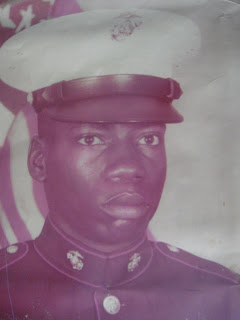 |
| Commit to stop complaining and start expressing your thankfulness for everything that is good in your life. |
1. Complaining poisons my perspective.
Two verses, one concept. "In everything give thanks for this is the will of God in Christ Jesus concerning you" (1 Thess. 5:18). "Rejoice in the lord always, and again I say rejoice"(Phil. 4:4).
The verses are very clear and the concept is very simple. Stop complaining and be grateful. It's very easy to say, but not so easy to do. But the reason why this is so important is also very simple and clear. No matter what has happened to you, whether you have lost a loved one through death, whether divorce, car accident, sickness, lay-off, lawsuit, or some other terrible circumstance; it could be so much worse. I lost my dad last year, and the way in which I lost him made the circumstances so much more devastating, but then I met this lady just a few weeks ago who in the span of a few months lost her mom, dad, and husband. True story. Losing my dad was hard, but the thought of losing all three of them at once is too much to stomach. I couldn't imagine losing my mom right now. And I won't even attempt to think what I would do without my wife. So again no matter what's going on, it could be so much worse.
Imagine for a moment what its like to have been born in abject poverty of a third-world country. The images abound of young orphans scavenging for food in the landfills. Their entire day is one long quest to find food and survive. Then there are the countries where the ravages of war are constantly tearing communities, villages, and families apart. Imagine what it's like to live under the constant threat of tyranny, disaster, and the impending doom of war. No matter where you are, it could so much worse.
Commit to stop complaining! A couple years ago I started this campaign at my church where I said we were "campaigning against complaining". That's it! We have be determined to restrain ourselves from the temptation to complain. No matter what we have or where we are we can be thankful and grateful for something. Even in hardship and difficulty there is something to be grateful for. Even in death I can be thankful for the memories and the life that was. Even if the person who died was not a personal of good moral standards, we can be grateful for the lessons that we learned from their life. It is a stretch, I know, but that's what a commitment to gratefulness requires; scrounging for the glimmer of goodness and hope to celebrate with rather than focusing on the negative.
2. Prayer positions us for peace.
 |
| Instead of complaining to/with your friends, commit to praying with them. |
However, there is a formula for prayer that is extra significant here. "Be careful (anxious) for nothing; but in everything by prayer and supplication with thanksgiving let your request be made known unto God" (Phil. 4:6). It's so important to lay everything before God, to "pray without ceasing," and let every stressor be given over to God (1 Thess. 5:17). But it's just as important that when we pray and lay our burdens down that we would thank God and acknowledge what he has already done. We must pray with thanksgiving so that the work of God is always prominent focus. Our focus is nor primarily what we want or how we feel, but rather who God is, what He's done, and what He wants. We are blessed, and our prayers should always reflect our gratefulness more than our gripes.
In the next post I will deal with the last two. As for now, take these two and call me in the morning. I challenge you to do them and watch how your joy will flourish in the midst of hardship.











